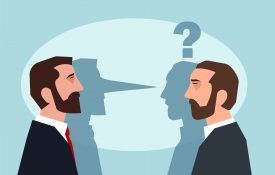-
The poor neglected gifted child
The Boston Globe: In 1971, researchers at Johns Hopkins University embarked on an ambitious effort to identify brilliant 12-year-olds and track their education and careers through the rest of their lives. The Study of Mathematically Precocious Youth, which now includes 5,000 people, would eventually become the world’s longest-running longitudinal survey of what happens to intellectually talented children (in math and other areas) as they grow up. It has generated seven books, more than 300 papers, and a lot of what we know about early aptitude. David Lubinski is a psychologist at Vanderbilt University, where the project has been based since the 1990s.
-
Studying Contagious Yawning Might Help Us Build Better Societies
Scientific American: We often turn to dogs and to chimpanzees to understand our species. Chimpanzees are our closest relatives (with bonobos), while centuries of selective breeding have turned dogs into a species uniquely suited to comprehend our own social cues. If anybody can help us understand contagious yawning, it’s them. This week, primatologists Matthew Campbell and Frans de Waal of the Yerkes National Primate Research Center at Emory University added a new chapter to the ongoing story of contagious yawning. But to understand their findings, its worth looking back at the history of contagious yawning research and the ongoing controversy over whether it reflects empathy or not.
-
Does Teaching Kids To Get ‘Gritty’ Help Them Get Ahead?
NPR: It's become the new buzz phrase in education: "Got grit?" Around the nation, schools are beginning to see grit as key to students' success — and just as important to teach as reading and math. Experts define grit as persistence, determination and resilience; it's that je ne sais quoi that drives one kid to practice trumpet or study Spanish for hours — or years — on end, while another quits after the first setback.
-

The Unconscious Mind Can Detect a Liar — Even When the Conscious Mind Fails
When it comes to detecting deceit, your automatic associations may be more accurate than conscious thought in pegging truth-tellers and liars, according to findings from a psychological study.
-
How Do Social Pressures Tip Our Ethical Balancing Acts?
Scott Adams, who has endlessly satirized office culture in his comic strip Dilbert, once surmised that the most influential people in his life were probably not even aware of what they’d taught him. That lack of awareness Adams describes is rather common. Studies have demonstrated that people tend not to recognize the influence they have over others when they make a request, suggestion, or observation. You may have trouble saying no to a colleague who asks for help on a project or assignment, but you can bet that same individual would have trouble declining your requests, as well. But what happens when someone asks you to do something unethical?
-
The Brooding Mind: Making the Worst of Ambiguity
The Huffington Post: Imagine yourself at your 10-year high school reunion, a long anticipated get-together for you and all your old friends. You haven't seen many of them since graduation day, and naturally everyone is comparing notes on the lives they have lived since then. This puts you in a reflective mood, but not in a good way. Life has been unkind to you -- compared to the lives of your friends, who have all been spared your travails. For days after the reunion, you can't focus on anything but your difficulties, and the unfairness of it all. If you're a brooder, that is. Someone else might have the same reunion experience, yet come away with a very different interpretation.

